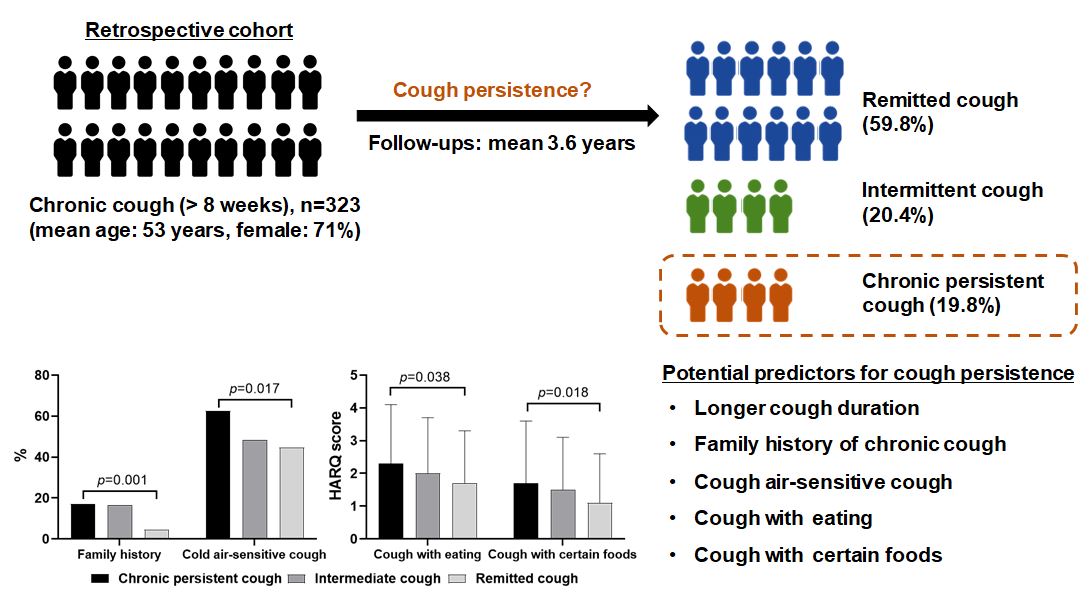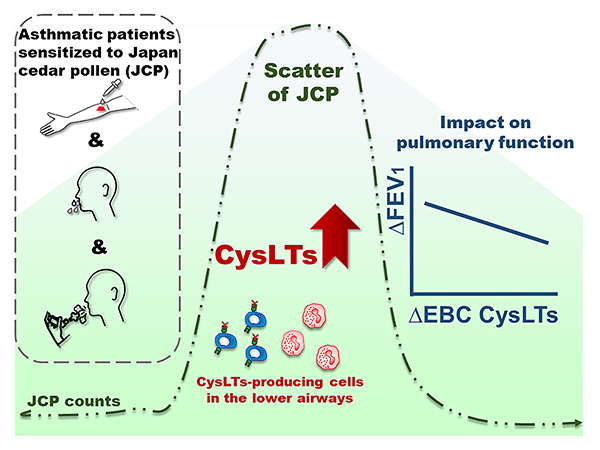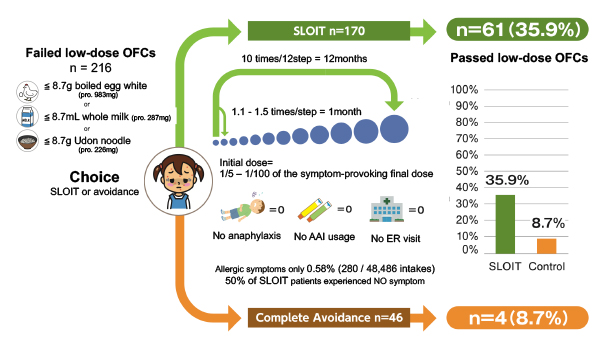Volume 69, Issue 4 (October 2020)
Editor's Choices
Editor’s comment: Chronic cough, defined as a cough that lasts more than 8 weeks, is encountered often in general practice. The most common causes of chronic cough are rhinorrhea, asthma, and acid reflux. Despite the clinical importance of chronic cough, little is known about its long-term prognosis. To find out more, the authors conducted a retrospective cohort study of patients with chronic cough and evaluated the cough duration. The authors found that cough persists in approximately 20% of patients more than four years following systematic assessment and treatments. The authors also found that persistent cough was associated with family history, cold air-sensitivity, or cough with eating.
Editor’s comment: It is well known that asthmatic symptoms in patients with asthma and concomitant seasonal allergic rhinitis (SAR) deteriorate during the Japanese cedar pollen (JCP) season. To address the underlying mechanisms, the authors analyzed seasonal variations in eicosanoid levels in the exhaled breath condensate of patients with asthma and concomitant SAR sensitized to JCP and of those not sensitized to JCP during the JCP season. They found that in the patients sensitized to JCP, seasonal increases in eicosanoid levels in the exhaled breath condensate likely promoted deterioration in pulmonary function despite optimal maintenance treatment.
Editor’s comment: Oral immunotherapy (OIT) effectively induces desensitization to childhood food allergies to chicken eggs, milk, and wheat. However, the optimal initial and maintenance doses for OIT are still unknown. The authors conducted a nonrandomized controlled clinical trial to evaluate the feasibility, efficacy, and safety of slow low-dose OIT (SLOIT) in children with food allergies, with accepted severity-stratified initial and maintenance doses according to patients' allergy severity, determined by oral food challenges. They report that SLOIT shows great feasibility, efficacy, and safety, providing a promising option for patients with





